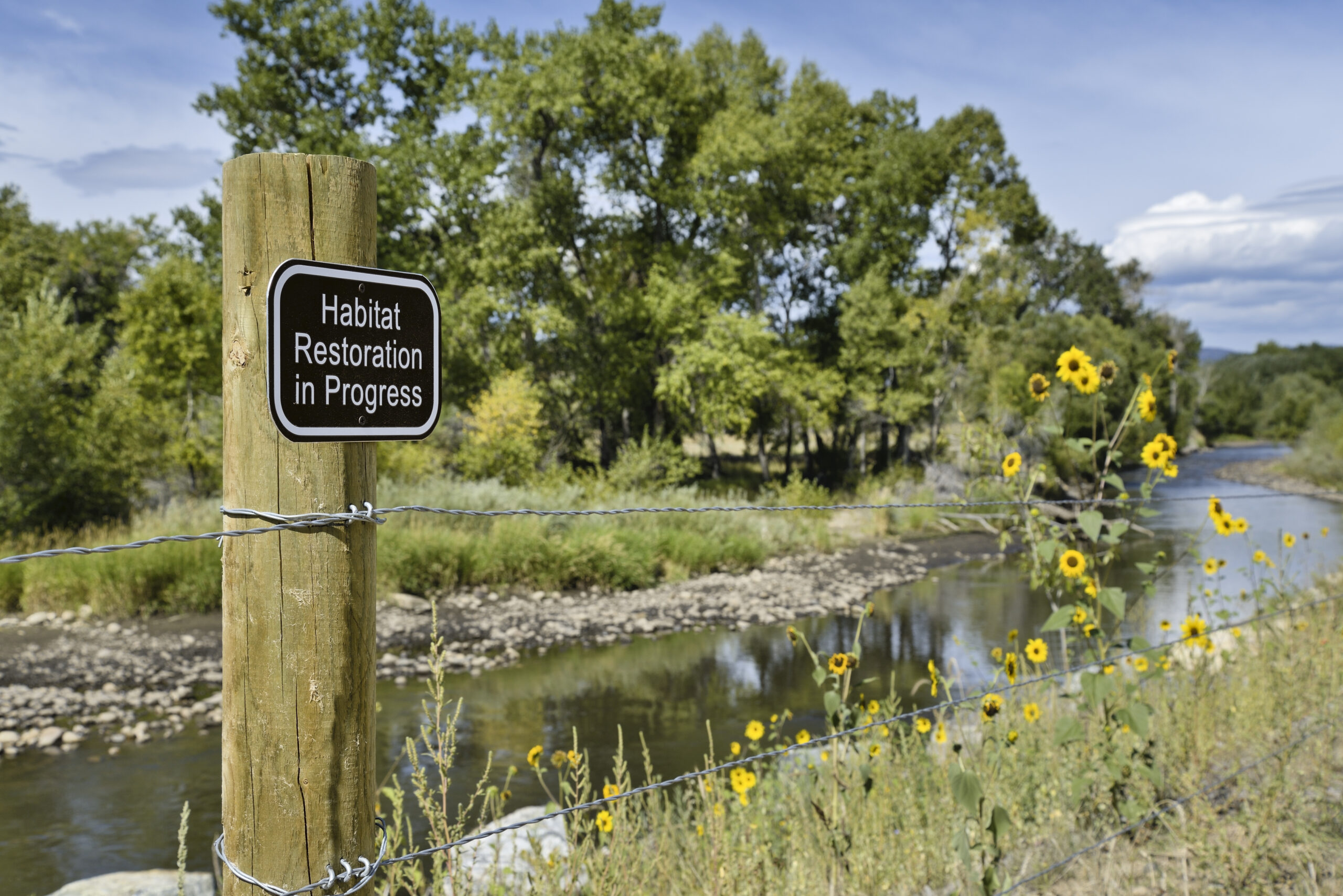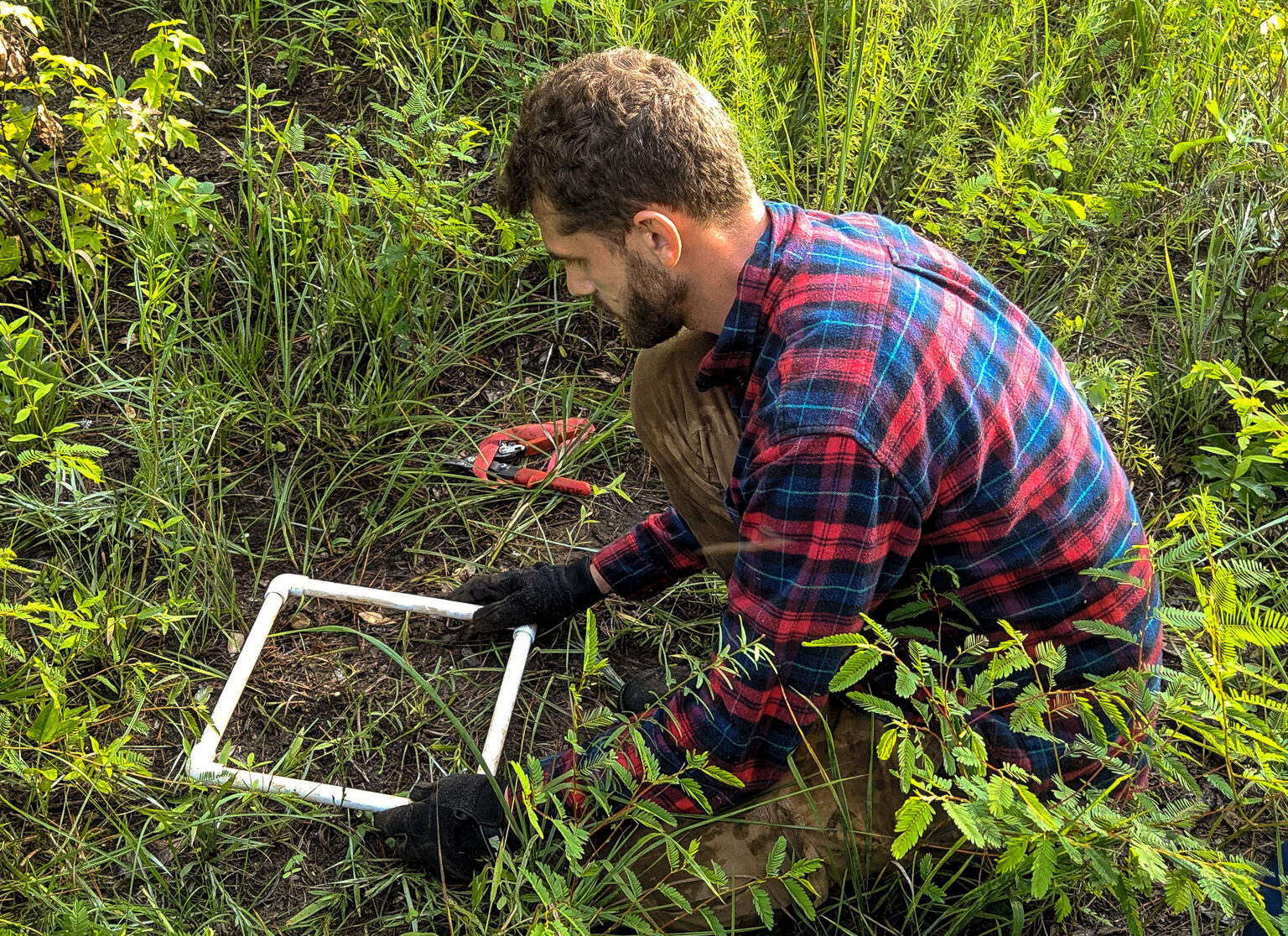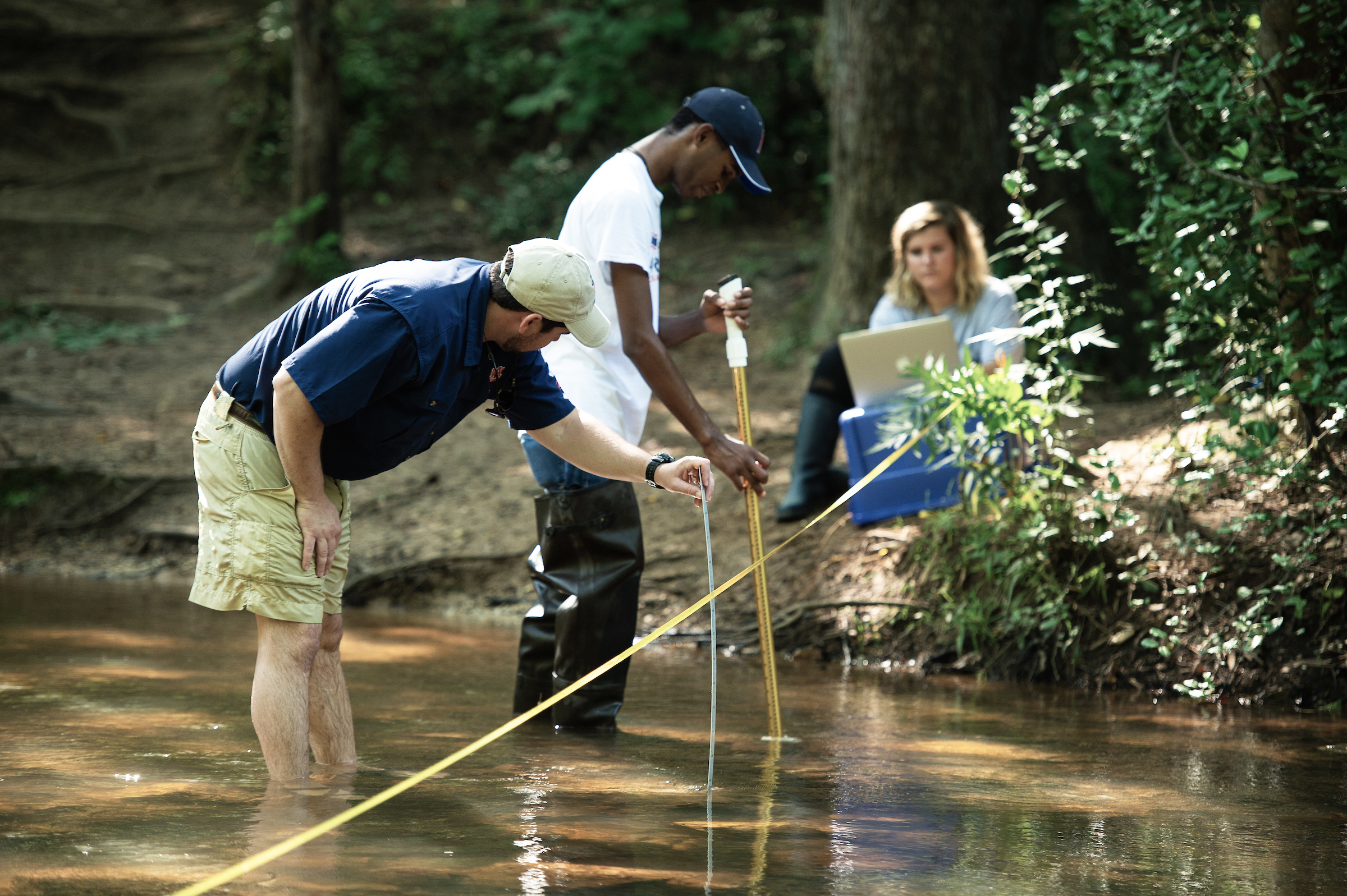
Environmental Conservation and Management
Throughout the world, the quality of life of individuals and communities is directly associated with the use and management of land, water, soil, plants and wildlife. Natural resource and environmental managers seek to balance the diverse and interconnected needs of society with the sustainable use of natural resources to guide the ways in which humans interact with their surrounding environments.

Located in the East Central region of Alabama, the Auburn University College of Forestry, Wildlife and Environment, or CFWE, offers easy access to the abundant forests, rivers and streams, and waterways that make this state one of the most biologically diverse in the nation. These diverse natural habitats, which span from the Gulf of Mexico to the Tennessee Valley, make Alabama an ideal place for education and careers in natural resources. Established in 1856 as a land-grant institution, Auburn University offers an excellent value and quality of life for its students. Auburn University, which is situated within the idyllic community of Auburn, consistently ranks as a “Top 50 Public Universities” in the country by U.S. News and World Report and has been voted the “Best College in the State” by Forbes Magazine. Boasting annual enrollment at nearly 30,000, Auburn has also been voted one of the “Best Values in Public Colleges” by Kiplinger with 98% of Auburn alumni polled highly rating their decision to attend Auburn.

From biodiversity loss and pollution to land use change and climate disruption, today’s environmental challenges demand innovative, interdisciplinary solutions. Therefore, the Environmental Conservation and Management degree equips students to meet these challenges by integrating ecological and social science with practical management skills. Our program prepares students to work across sectors—with communities, non-profits, government agencies and private companies—to develop and implement conservation strategies that sustain ecosystems and enhance human wellbeing. With a strong emphasis on applied learning, students gain the knowledge and experience to lead in diverse contexts, whether their focus is wetlands, forestry, coastal resilience, urban sustainability, protected areas, or working landscapes. Through a comprehensive blend of classroom instruction and field-based coursework, our graduates are prepared to make an impact.

The College of Forestry, Wildlife and Environment welcomes transfer students who wish to apply up to 60 semester hours of credit toward their degree program at Auburn University. Students may also participate in one of the college’s cooperative transfer programs to earn credit toward their degrees at the University of West Alabama and other institutions. Auburn University also offers the Path to the Plains program, where students may take classes simultaneously at two institutions until their junior year, when they will fully enroll at Auburn.
If you have any questions about Auburn’s grade point requirements for transfer students, transferring or would like an academic advisor to evaluate your transcripts, please call our Student Services office at 334-844-1001 or e-mail workingwithnature@auburn.edu. Learn more about Auburn’s cooperative transfer programs.

The ENVC major combines environmental, social science and management coursework aligned with the program’s core learning objectives. To further tailor their academic and professional path, students complete a required minor that complements the interdisciplinary nature of the degree. These minors provide focused training across a range of conservation and management contexts—integrating both ecological and human dimensions—to prepare students for impactful careers in sustainability, resource management, environmental consulting and beyond. Minors that can be paired with the degree (among others on campus) include:
Social Science Minors: Conservation Social Sciences, Environmental Law, Nature-based Recreation
Ecological Minors: Coastal Management, Forest Health, Natural Resources Ecology, Restoration Ecology, Urban Forestry, Watershed Sciences
Interdisciplinary Minor: Tropical Conservation and Sustainable Development in Costa Rica (Summer Study Abroad)

The environmental conservation and management field offers various career options and solid earning potential in both public and private sectors, including positions within federal, state and municipal governments and nonprofit agencies such as land trusts, conservancies and other environmental organizations. Depending on an individual’s specialization with a minor, experience and skill level, graduates may qualify for occupations such as:
- Land and resources manager or planner
- Environmental consultant
- Environmental or conservation scientist
- Urban planner
- Forest health specialist
- Environmental educator
- Urban forester
- City arborist
- Ecotourism operator
- Forest seedling nursery manager
Explore this career guide toolkit to learn about conservation careers.









